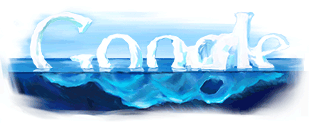A while ago I wrote a brief satirical bit about culture, comparing culture to conspiracy. And the occasional reader who lands here after following my comments at other web sites may notice that I use the word “culture” frequently.
My reason is simple: The concept of culture is a model I find useful.
Since I use the word so often it occurs to me that I should begin to explain how I think about culture and why I find it so useful.
Satirical comparisons aside, one broad working definition of culture I like to use is this:
Culture is what we do,
and the stories we tell about why we do it.
You know the advice, “
When in Rome, do as the Romans do”? That's culture. When someone looks at me strangely and asks, “
You're not from around here, are you?” That's culture. On the first day at a new job, when someone says, “
That's not how we do things around here!” That's culture.
When someone says, “
I can't do that because I'm a Somethingist”, that's a culture story. When someone says, “
I must do this because I'm a Somethingist”, that's another culture story.
Every day, we humans
do things. And we explain to each other why we do those things and why don't do other things. Every day we navigate a sea of deeds, steering by the stories we tell.
(Sometimes we navigate totally on autopilot, by habit, following courses plotted by stories we no longer bother to pay attention to. But
that's a story for another day.)
Okay, interesting metaphor, that, but what's it good for?
Well, for one thing, thinking about what we do and the stories we tell to explain ourselves is a different way of seeing. It's a perspective that I rarely see or hear mentioned in the news, in blogs, in conversation. Seeing from the perspective of culture exposes facets of our world that remain hidden when viewed only from the perspective of economics or from the perspective of politics.
But more than that, thinking in terms of culture offers a way to simplify some complex issues. It offers a way to transform thorny, intractable problems with unsatisfying half solutions into simpler, manageable problems with potentially satisfying solutions.
This concept of a transform comes from my background in engineering. Sometimes, for example, a math problem seems incredibly complicated, tedious, and difficult when it's expressed in terms of
time. If that problem can be rewritten, if it can be expressed in terms of
frequency, it may be easier to analyze and easier to solve. Then when an answer has been found in terms of frequency, that solution can be transformed back, to be expressed in terms of time. The problem and its solution can be
transformed back and forth between the “time domain” and the “frequency domain”.
But I'm not interested in math problems anymore. I'm interested in environmental problems. I'm interested in social problems. I'm interested in economic problems. I'm even interested in (eeww!) political problems. And when I spend time with like-minded people who hope to solve those problems, I see some of my colleagues expend enormous energy and time grappling with intractable methods that lead to unsatisfying half solutions (and worse, to new problems).
It seems to me there's an easier way. It seems to me that politics boils down to things that people do and stories we tell each other about why we do those things. The Economy and the businesses that operate within The Economy are just things that people do and stories about why we do them. Crime, poverty, and public education? Things we do. Stories we tell. And the environment? Our home planet is going downhill fast as a consequence of the things people do and the stories we tell each other about why we continue to do them.
That's
culture. Deeds and stories.
It seems to me that culture ties together all those other problem domains. Culture is their common denominator, their common variable. That means all those problems can be expressed in terms of culture. Those problems can be
transformed into the
culture domain. I'm confident there are simpler solutions —
in the culture domain.
And after we've found simpler, more satisfying solutions, we can — if we wish — transform those solutions back to the economic domain, back to the political domain, back to the public school domain.
I'm confident our problems can be solved. I'm confident that satisfying solutions can be found —
but not in the domains where many folks are currently looking. We've been trying for years and years to solve problems of crime and poverty and pollution in the political domain or the economic domain. How many stories do we tell each other about why we keep trying to do those things?
I'm tired of economic misdeeds and political fairy tales. I'm tired of so-called solutions that create new problems.
For the sake of our children and grandchildren, we need to do things differently. That means we need a better story to make sense of the things we do. That's culture.
And that's why I talk about culture so much. That's why I look at problems from the perspective of the culture domain. That's why I seek solutions within the culture domain. That's why I see culture as a model that's useful.
-------------------------------------------
Something to keep in mind about this model of culture:
Most models are wrong, but some are useful.Culture: things we do, stories we tell. See
The Fifth Discipline, by Peter Senge, for example. Also
Moral Politics: How Liberals and Conservatives Think, by George Lakoff, and
Ishmael, by Daniel Quinn.
See how this piece fits other pieces at
BluePuzzle.org.



 I see faces in this picture.
I see faces in this picture. I often think about the metaphor of “the tip of the iceberg”. It's a common phrase, and we all know it suggests there may be something huge, mysterious, and dangerous hidden from our view. But do we use that knowledge effectively? Does it make a difference?
I often think about the metaphor of “the tip of the iceberg”. It's a common phrase, and we all know it suggests there may be something huge, mysterious, and dangerous hidden from our view. But do we use that knowledge effectively? Does it make a difference? I've been planning to recommend Ursula K. Le Guin's delightful book,
I've been planning to recommend Ursula K. Le Guin's delightful book,